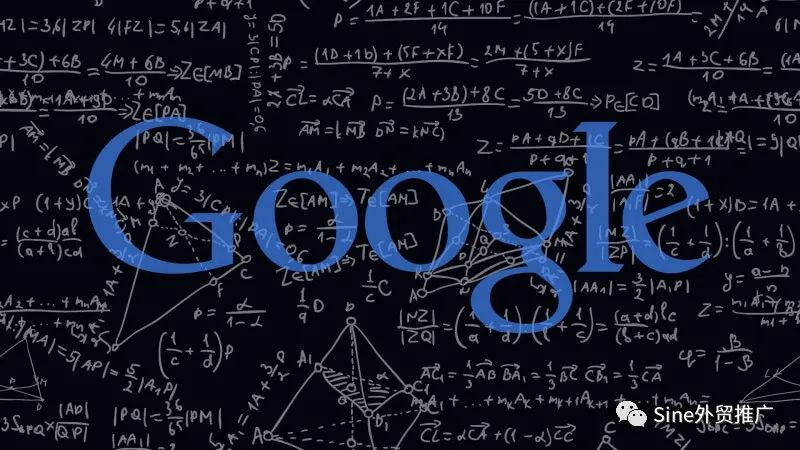Your ranking decline is likely not due to an update and good luck trying to figure out the ranking factors impacting your site.
您的排名下降可能不是由于更新和祝您好运来找出影响您网站的排名因素所致。

In covering Google algorithm updates for almost twenty-years now, one trend you notice over and over again is how SEOs tend to do two things. Many SEOs blame a Google algorithm update for their ranking declines and many SEOs often try to figure out which ranking factors they need to work on for a specific site. The thing is, often this is the wrong way to go about Google algorithm updates.
在涵盖近二十年来的Google算法更新中,您会发现一遍又一遍的趋势是SEO如何完成两件事。许多SEO都将排名下降归咎于Google算法的更新,许多SEO经常试图弄清楚他们需要为特定网站处理哪些排名因素。事实是,通常这是进行Google算法更新的错误方法。
In my keynote during our virtual SMX Next last month, I covered the past 20 years of Google algorithm updates and what SEOs need to focus on in the future. I later hosted a panel with a few veteran SEOs to discuss Google algorithms, I asked these experts, what do SEOs often get wrong about these Google updates.
在上个月虚拟SMX的主题演讲中,我介绍了Google算法的过去20年更新以及SEO未来需要关注的重点。后来,我主持了一个由几位资深SEO组成的小组,讨论Google算法,我问这些专家,SEO经常对这些Google更新有什么误解。
It wasn’t the update
这不是更新
Your ranking decline (or increase) was probably not due to that recent Google algorithm update. Yes, it is possible, but you first need “to have a [web site code] change log, you have to know what changes you made and when and be able to very definitely correlate” any changes you made that may have impacted your rankings. If you made zero changes and you lost 40% of your traffic on the same day as an algorithm update, “yeah that’s probably the update,” Carolyn Shelby, manager of SEO at ESPN said. But if you “made 80 changes the week before the update, we lost the traffic two days before the update, probably not the update,” she added.
您排名下降(或增加)的原因可能不是最近的Google算法更新引起的。是的,这是可能的,但是您首先需要“拥有一个[网站代码]更改日志,您必须知道您进行了哪些更改以及何时以及能够非常明确地关联”所有可能影响排名的更改 。ESPN SEO经理Carolyn Shelby说,如果您进行零更改,并且在算法更新的同一天丢失了40%的流量,那么“是的,这可能是更新。” 但是,如果您“在更新前一周进行了80次更改,那么我们在更新前两天(可能不是更新)就失去了流量,”她补充道。
One example Shelby gave at ESPN was around the time Google announced the launch of RankBrain. Truth is, when Google announced it, it actually went live months and months prior to its official announcement. In any event, the people at ESPN felt a ranking issue the company was experiencing was directly related to RankBrain. But Shelby said, “You need to calm down, I’m sure, this has nothing to do with this, we broke something else.” And when they fixed the issue they had with an AMP implementation, traffic returned. It was not related to any algorithm update Google released, but rather a change made to the site.
谢尔比在ESPN上举的一个例子大约是Google宣布启动RankBrain的时候。事实是,当Google宣布它时,它实际上已经在正式宣布之前的几个月上线了。无论如何,ESPN的员工都认为公司遇到的排名问题与RankBrain直接相关。但是谢尔比说:“我敢肯定,你需要冷静下来,这与我们无关,我们还打破了其他东西。” 当他们解决了AMP实施中遇到的问题时,流量就返回了。它与Google发布的任何算法更新都没有关系,而是与网站的更改有关。
I brought up the nofollow attribute change where Google would treat the nofollow link attribute differently. The truth is, Google never fully launched the change — not yet at least and when it does, it won’t impact rankings. But SEOs were citing this as a reason for ranking changes, when it was not.
我提出了nofollow属性更改,其中Google将以不同的方式对待nofollow链接属性。事实是,Google从未完全启动这一更改-至少现在还没有,并且这样做不会影响排名。但SEO却将此作为排名变化的原因,而实际上并非如此。
Correlating ranking factors
相关排名因素
Another thing SEOs have been trying to do for ages is trying to figure out which ranking signals or factors are most important for a specific update. Back in the old days, yes, we know Penguin was about links, Panda was about content. In the earlier days, SEOs would be able to track Google Dances and PageRank values directly towards rankings the next day. But now, we really cannot do that.
SEO多年来一直试图做的另一件事是试图弄清楚哪些排名信号或因素对于特定更新最重要。过去,是的,我们知道企鹅是关于链接的,熊猫是关于内容的。在早期,SEO可以直接在第二天的排名中跟踪Google Dances和PageRank的值。但是现在,我们确实无法做到这一点。
Eric Wu, VP of product growth at Honey Science said, “SEOs are spending too much time trying to figure out like what correlation matches the algorithm update.” The more “you understand machine learning” the more you know that you cannot figure this out. “Weighted values of these things the behavior doesn’t happen on all the sites similarly or the same way right,” Eric said.
Honey Science产品增长副总裁Eric Wu表示:“ SEO花费太多时间试图弄清楚相关性与算法更新是否匹配。” 您对机器学习的了解越多,您就知道自己无法弄清楚。埃里克说:“这些东西的加权值不会在所有站点上以相似或相同的方式发生。”
Focus on your web site, not the algorithm
关注您的网站,而不是算法
In short, instead of obsessing about the changes Google is making to its algorithm, focus on your web site. You can end up spending too much time chasing your tail, when you can use that time making your own web site better. Focus on what your users want, build more and better content. Build better tools and features on your site. Make your site’s navigation easier for your users, make the site load faster and make the user experience better.
简而言之,您不必关注Google对算法所做的更改,而应关注您的网站。当您可以利用这段时间来改善自己的网站时,您可能会花太多时间去追逐自己的尾巴。关注用户的需求,构建更多更好的内容。在您的网站上构建更好的工具和功能。使用户的网站导航更加轻松,使网站加载速度更快,并为用户带来更好的体验。
Those are all better uses of your time than obsessing over Google algorithm updates.
与痴迷Google算法更新相比,这些都是更好地利用时间的方式。
来源:Barry Schwartz
文章为作者独立观点,不代表DLZ123立场。如有侵权,请联系我们。( 版权为作者所有,如需转载,请联系作者 )

网站运营至今,离不开小伙伴们的支持。 为了给小伙伴们提供一个互相交流的平台和资源的对接,特地开通了独立站交流群。
群里有不少运营大神,不时会分享一些运营技巧,更有一些资源收藏爱好者不时分享一些优质的学习资料。
现在可以扫码进群,备注【加群】。 ( 群完全免费,不广告不卖课!)







发表评论 取消回复